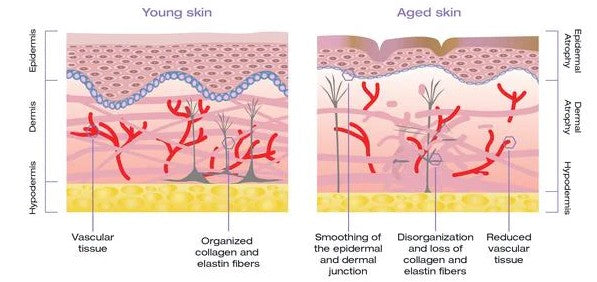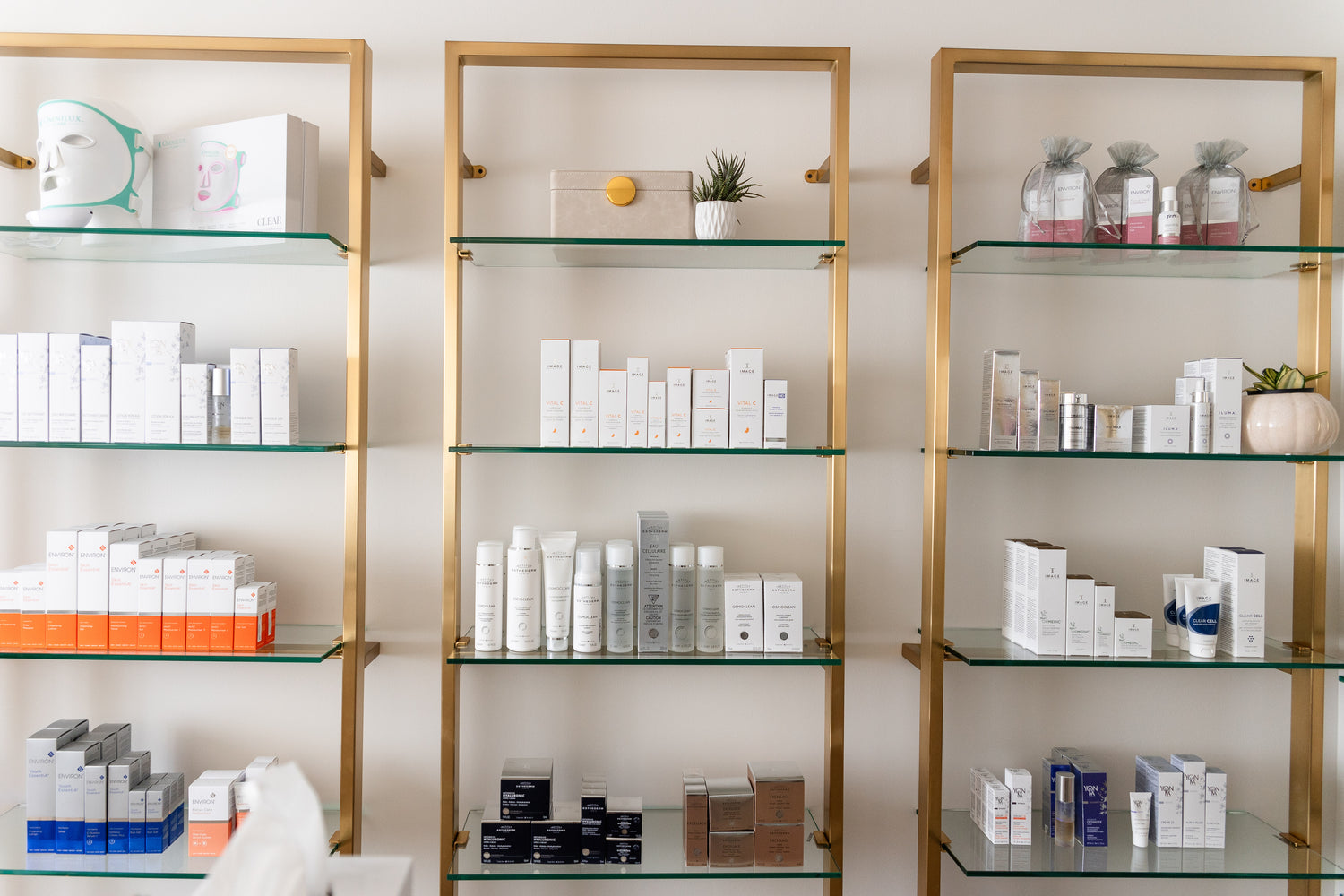What is hyaluronic acid?
Let's start with the basics - hyaluronic acid (HA) is an essential sugar molecule that naturally occurs in the skin as well as the connective tissue in your body. It binds itself to collagen on one side while simultaneously binding to water molecules so that the skin can appear plumper, dewier and more hydrated.
Why is hyaluronic acid is beneficial?
Basically, hyaluronic acid acts as a cushioning and lubricant for joints, nerves, hair, skin and eyes. Not only does it draw moisture to itself, but it can scientifically hold up to 1,000 times its weight in water. Visualize a sponge and how it absorbs and retains water.
As we age, we see a decrease in the production of collagen and naturally occurring HA and is the primary reason why replacing it topically is so important. Harsh environments, colder weather and underlying skin conditions can impair the skin barrier, allowing water to escape. Think about what your house plants look like when you forget to water them - that is what's happening to your skin if dehydration goes unaddressed.
HA is found in a wide array of skincare products because it is almost universally beneficial when applied topically. It is lightweight, nonirritating and easily absorbed into the skin. While it has the word "acid" in its name, in general, it is safe for every skin type. Those with ultra-sensitive skin should do a patch test first before adopting it into their skincare regimen.
Which hyaluronic acid is best?
There is a plethora of skincare products on the market that incorporate HA in their ingredient decks and tout high concentrations in their formulation. But the therapeutic effectiveness of HA-based products directly depends on the molecular weight of the HA in the specific formulation.
Molecules with lower molecular weight are smaller and can, therefore, penetrate deeper into the skin structure providing maximum below-the-surface hydration. Higher molecular weights, on the other hand, remain closer to the surface but deliver immediate intensive hydration to the surface layers of the skin for an instant smoothing and firming effect. So do you want a higher or lower molecular weight HA? For a hyaluronic acid product to deliver both instant and long-lasting results, you need a combination of molecular weights.
While several products in my skincare arsenal have HA in their formulation, I turn to Institut Esthederm's Intensive Hyaluronic Collection (serum, moisturizer , mask and eye gel) as soon as I start planning my Thanksgiving menu every year and I use it throughout the winter (which is when my skin seems to need it most).
The multi-weight HA products in this collection immediately rehydrate and plump, while the encapsulated and time-released HA molecules work to sustain the benefits well after the initial application. My skin is not dry - it does NOT lack oil. My oil glands are actively producing sebum and I have the occasional blemish to prove it :-) But in the winter, it is definitely less hydrated and can feel stressed or compromised.
Why I love hyaluronic acid?
It is truly universal. For my clients who have dry skin (they do not produce an adequate amount of oil/sebum), HA delivers intense hydration. For my clients who may be normal-to-oily, HA works to support the skin's natural moisture barrier without stimulating more sebum production, which may trigger breakouts.
So is hyaluronic acid worth all the hype?
The short answer is yes. But don't be lured by simple claims of high percentages. Dig a little deeper into the actual formulation to understand, not only the concentration of HA, but the structure of the molecules and how they actually work.






